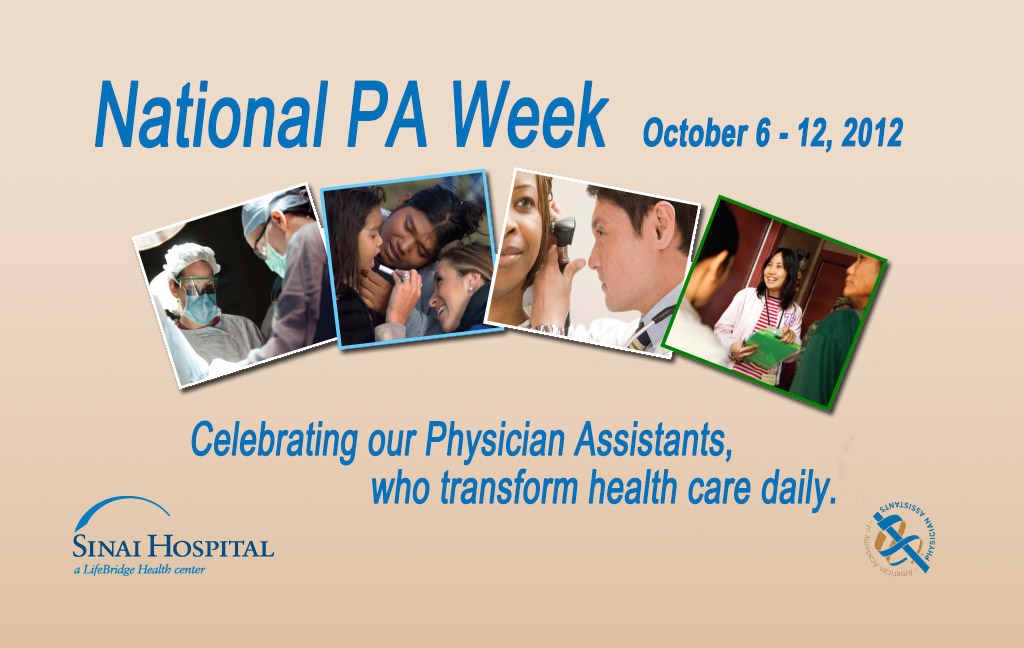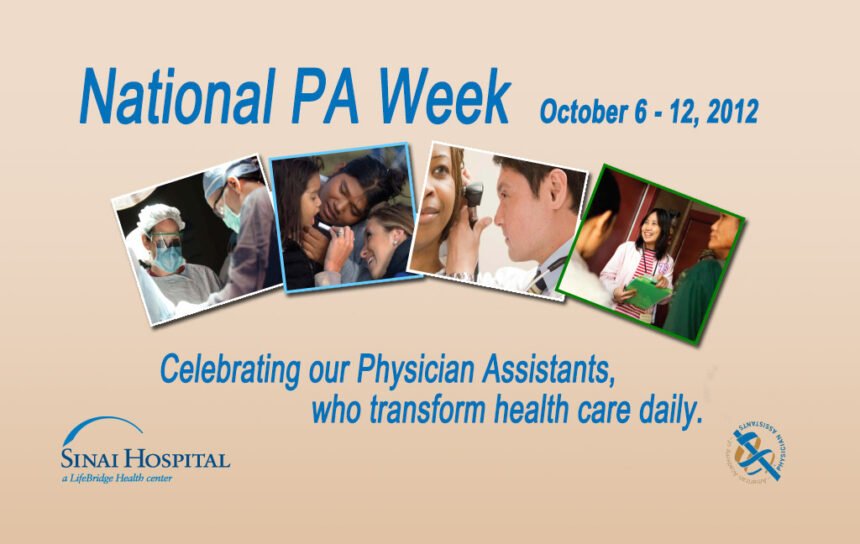This week has been designated as National Physician Assistant Week, so LifeBridge Health proudly joins in the celebration. An estimated 81,000 certified PAs currently practice in the U.S., including most than 80 for LifeBridge Health.
What does a PA do? Well, at the most basic level, a PA is a medical practitioner who works under the supervision of a physician.
This week has been designated as National Physician Assistant Week, so LifeBridge Health proudly joins in the celebration. An estimated 81,000 certified PAs currently practice in the U.S., including most than 80 for LifeBridge Health.
What does a PA do? Well, at the most basic level, a PA is a medical practitioner who works under the supervision of a physician.

Beyond the basic definition, however, the PA profession represents an essential part of the health care infrastructure in a number of important ways.
- The PA profession extends the reach of medicine and the promise of health care to remote and underserved communities. PAs play vital roles in hospital, private practice and nursing home settings.
- PAs are versatile. They are trained with a focus on primary care, enabling them to identify the symptoms of a wide range of illnesses.
- PAs also focus on preventative care and, therefore, help to reduce health care costs. They help patients to discover what their medical problems are before they become more serious.
- All 50 states now have laws in place to allow PAs to prescribe medicine to their patients, thus giving them more ways to provide additional health care. (A PA must have a degree from an accredited PA program and have passed a national certifying examination.)
- PAs are entering the medical workforce at a faster rate than physicians, helping to compensate for the current shortage of physicians throughout the medical system.
Rich Rohrs, PA-C, DFAAPA, Director – Hospital Medicine, Northwest Hospital, had this to say about the role of the PA:
“PAs play a critical role at Northwest Hospital by essentially providing 24/7 House Staff coverage in a community, non-teaching hospital. Perhaps even more importantly PAs provide for a higher level of service and quality by supporting our nursing staff and the attending physicians. As one of the first Maryland hospitals to employ PAs, the program has continued to grow at Northwest and is the highest ranked item on our annual physician satisfaction survey.
The PA profession continues to grow in America, frequently being cited as the best health career field and among the fastest growing, by many national surveys. With the advent of health reform and continued shortages of physicians in all areas, the future for increased PA utilization remains very strong. As part of physician led teams, PAs will be major contributors to a healthier America.”
Watch Rohrs talk more about health care here:
During this week, we want to say a big thank you to all of our PAs. We appreciate your dedication to patient care, and we recognize the impact that you make in the lives of those patients every day.
For more information visit the American Academy of Physician Assistants.








